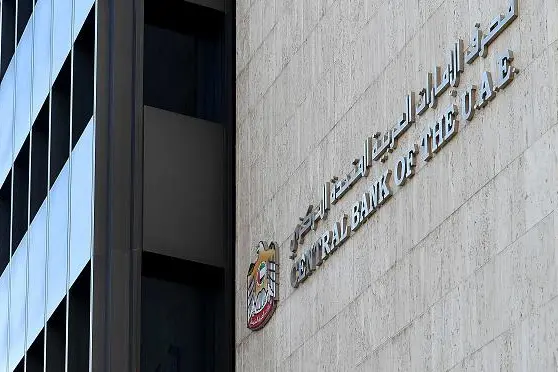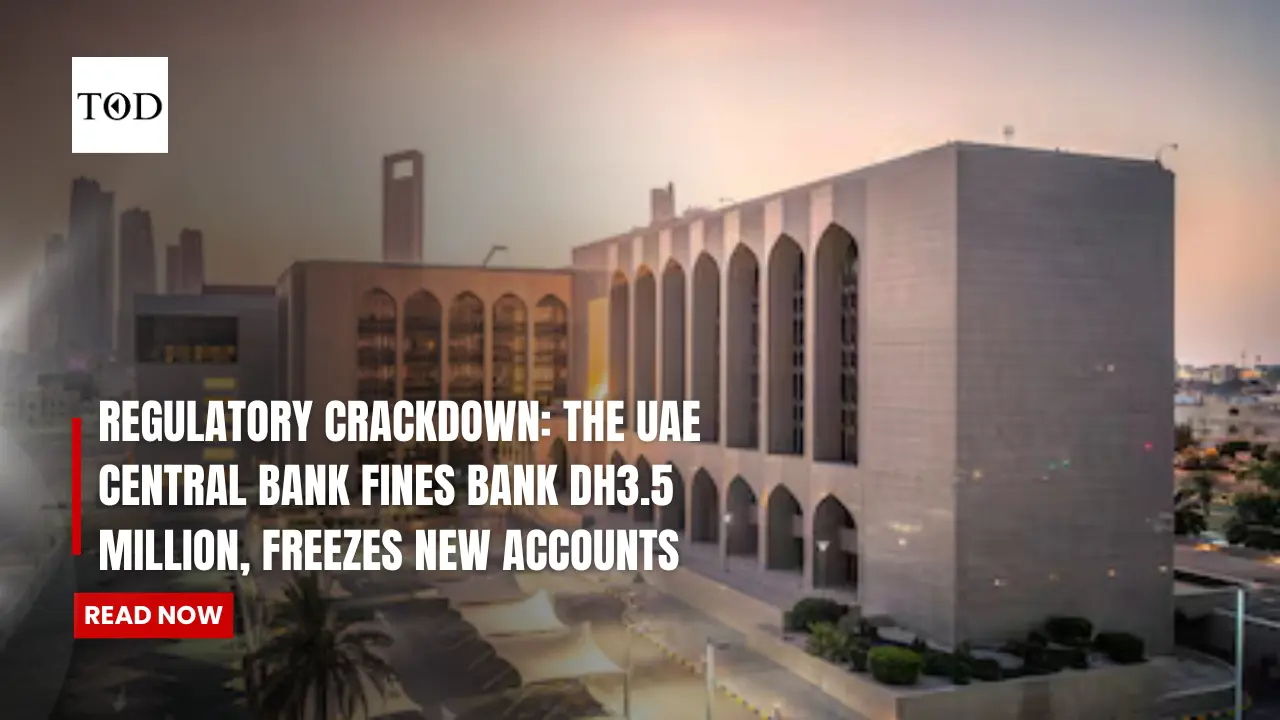June 28, 2025 | Dubai, UAE– After identifying serious flaws in a local bank’s compliance and risk oversight procedures, the UAE Central Bank took harsh action against it. The UAE Central Bank has levied an administrative punishment of AED 3.5 million and barred the institution from onboarding new customers for six months in an effort to maintain openness and strengthen financial integrity.
The enforcement action is the result of a thorough supervisory examination and inspection that was planned as part of the UAE Central Bank’s duty to make sure that all regulated financial institutions follow the stringent regulations of the UAE.
Despite this, the bank has not yet been officially recognized.It was discovered to have significant shortcomings in terms of adhering to know-your-customer (KYC) and anti-money laundering (AML) procedures.
The UAE Central Bank Strengthens to Preserve Accountability and Transparency
The UAE Central Bank reaffirmed its steadfast dedication to upholding the strictest financial regulations. Federal Decree Law No. (20) of 2018 on Anti-Money Laundering and Combating the Financing of Terrorism and Illegal Organizations, along with relevant Cabinet Decisions, must be completely complied with by all banks, according to a formal statement. The six-month ban on taking on new customers serves as a protection as well as a disciplinary measure.

To demonstrate improved compliance, the bank must carry out a corrective action plan, submit updates to the UAE Central Bank on a regular basis, and submit to further audits throughout this time.
The amount of AED 3.5 million will be sent to the national treasury in compliance with Central Bank Law No. (14) of 2018, demonstrating the Central Bank’s zero-tolerance policy for regulatory violations.
UAE Central Bank Reaffirms Regulatory Standards in the Banking Sector
Financial institutions cannot afford to be complacent, as seen by the UAE Central Bank’s dramatic increase in regulatory scrutiny.A noticeable increase in scrutiny is evident from recent activities, particularly with regard to risk management procedures, client due diligence, and transaction monitoring for suspicious activity.
This is a thorough examination of compliance frameworks, not simply a standard check-in. The focus isn’t just on individual cases, a top Central Bank official stressed. The message is clear: regulatory action is about to happen if an organization’s internal controls are insufficient.

The United Arab Emirates is stepping up its efforts to combat financial crime in an effort to conform to global norms and guarantee complete FATF compliance.These actions, according to industry observers, are a part of the UAE’s larger endeavor to become a preeminent, reliable financial hub. By regularly interacting with international regulators, the Central Bank has reaffirmed its dedication to upholding a safe and open environment for investors.
The regulatory environment is changing quickly, and financial companies doing business in the United Arab Emirates are facing increasing pressure to improve their compliance systems. The UAE Central Bank has reaffirmed its primary mandate, which is to protect monetary and financial stability, oversee and regulate the financial industry, and eventually aid in the country’s economic development.
There is more to the current regulatory action than meets the eye. It illustrates the Central Bank’s ability to spot systemic weaknesses and take prompt corrective action. Institutions under its purview are now obliged to improve governance standards generally, strengthen internal controls, and carry out in-depth assessments of their compliance regimes.

There is really no justification for falling behind because the Central Bank provides regulatory guidance, specialized training, and technical consultations to institutions that seek assistance. This episode demonstrates the Central Bank’s changing role as a proactive steward of the nation’s financial integrity in addition to its role as a regulator.
Market players should expect increased openness, quicker reaction times, and stricter enforcement measures in the future. The message is unambiguous: the Central Bank is setting the tone for the UAE’s financial ecosystem’s shift towards increased resilience and control.
Also Read- UAE Hiring Trends Get Exclusive Demand Tech Skills














